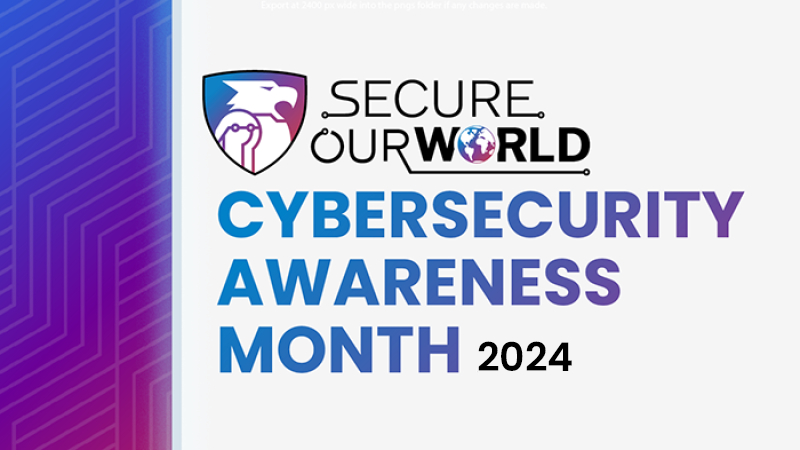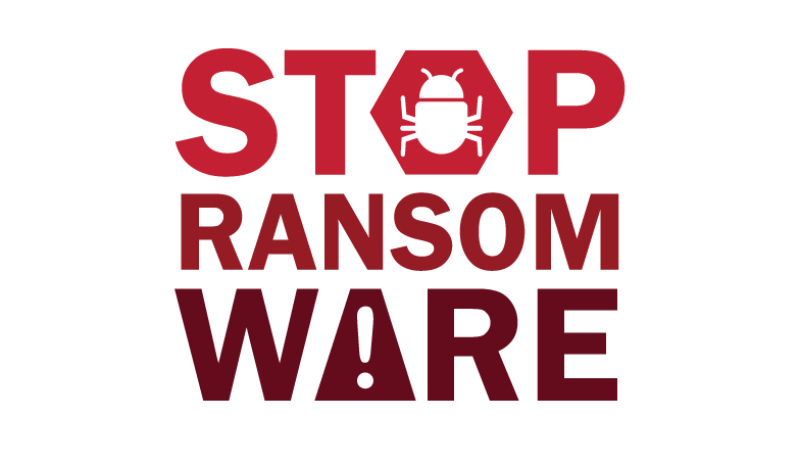Archived Content
In an effort to keep CISA.gov current, the archive contains outdated information that may not reflect current policy or programs.
Teach Employees to Avoid Phishing
Equip your staff to recognize and report phishing scams that could threaten your business.
Protect Your Business with Phishing Training
Phishing happens when attackers convince victims, like small business owners and their employees, to interact with harmful links, emails or attachments that could give hackers access to information or infect devices with malware.
In fact, most successful online attacks begin when someone clicks and downloads a malicious attachment from an email, direct message or social media post. Criminals can use stolen credentials to log into sensitive accounts to access data or money. Phishing can also result in an employee unwittingly downloading malware that damages systems or installs ransomware that holds systems captive.
Small and medium businesses are at risk of phishing attempts and often have fewer resources to prevent attacks than larger organizations. The good news is that many security breaches are avoidable if people are trained to spot and avoid phishing messages.
Are you training your employees to spot phishing and take steps to protect access to their devices? A well-trained workforce can learn how to spot common phishing signs and prevent attacks.
Follow These Steps to Avoid Phishing Scams
Phishing is a serious risk to small and medium sized businesses that often have fewer resources to dedicate to cybersecurity than large businesses. Fortunately, there are things you can do to reduce your risk!
1. Identify available training resources and train employees how to spot phishing.
With modern technology and social engineering tactics, it’s becoming harder to identify phishing attempts because they may include information that makes the message seem legitimate. Employees should be trained to look for basic signs of phishing emails such as strange or unexpected requests, often using alarming language or urging immediate action. Check the email address for validity, but also remember to think about whether the request seems legitimate. The email could be sent from a seemingly known entity whose account was compromised.
Malicious actors are improving their techniques all the time, so employees need to repeat training at regular intervals to learn about the latest scams and how to respond to suspicious communications. Regularly review common signs of phishing so employees are familiar with what to look out for.
If employees know how to recognize strange behaviors, this can provide organizations with early warning for malicious code or malware and give them a better chance at fighting such attacks. Threat literacy training helps by educating individuals on the various ways that bad actors infiltrate the organization (e.g., through websites, emails, scam alerts and social engineering). Effective training includes techniques for recognizing suspicious emails, web communications and the potential targeting of individuals at home.
You don’t have to create anti-phishing training materials from scratch. Your IT provider, professional/industry organization or a nonprofit may have ready-to-use materials available at no cost. CISA offers many free resources for small and medium businesses. (See below.)
2. Alert employees to the risks.
Ask your IT provider, or designate an employee as a security manager, to keep tabs on current events related to cybersecurity. Ask that person to brief you on the latest scams so you can keep your staff up to date between trainings.
Provide regular updates and messaging to continually remind employees, customers and vendors to watch out for communications that may seem legitimate but aren’t. If they are not expecting communication or receive something that seems off, they should check with supervisors through known channels.
3. Develop a culture of awareness.
Don’t just count on once-a-year training to be enough. As a leader, enforcing online safety practices starts with you! Adopt a culture of cyber responsibility. Commit to making your business safer by regularly reinforcing “cyber hygiene” like you would other workplace policies. Be sure employees know how and to whom to report suspicious emails or phishing attempts.
Check Out CISA’s Free Online Safety Resources!
Go to the Secure Our World’s Resources page for tip sheets and videos to help you equip your employees to stay safe online.
Review this blog post for tips on avoiding phishing attacks.
See the #StopRansomware Guide for steps you can take to protect against ransomware attacks.
Other Ways to Do Your Part
Small and medium businesses can take important steps to protect their customers. For example, use technology that offers multifactor authentication (MFA), and ideally enables it by default. Also look for technologies that enable Single Sign-On (SSO) at no extra charge. SSO is an identification method that enables users to log in to multiple applications and websites with one set of credentials. Require your employees to use password managers to ensure long, random and unique passwords across their accounts, and consider transitioning to passkeys in the future. Finally, make sure to update business software promptly.
By following the four simple behaviors below, you can help Secure Our World!

Secure Your Business
Protect your business, your employees and your customers with easy and effective safety habits and policies.

Require Strong Passwords
This is one of the easiest ways to protect your business from criminals who might otherwise access your accounts by guessing or using automated hacking programs.

Require Multifactor Authentication
Use more than a password when signing into accounts—such as a texted code, authenticator app or biometrics—to make them much safer than a password alone! MFA protects accounts by requiring additional authentication to prevent access by others.

Update Business Software
Defects in software, routers, VPNs and apps can give criminals an opening to your accounts. Software manufacturers publish patches, but you must install them to be protected! Don’t use outdated software. Keep business software up to date.
Related Content

October is Cybersecurity Awareness Month
Download the free Cybersecurity Awareness Month 2024 toolkit!

Avoiding Social Engineering and Phishing Attacks
Check out this blog post for more tips on avoiding phishing and other forms of online attacks.

Phishing-Resistant MFA Is Key to Peace of Mind
Require employees to use MFA and take it to the next level with FIDO security keys.

Stop Ransomware
Clicking a phishing link can lead to downloading ransomware which can threaten your business. Get resources to tackle ransomware more effectively.

Cyber Guidance for Small Businesses
Ready for more?
Get an action plan for your leadership team to implement—before a hacker attempts to steal your info or compromise accounts.




